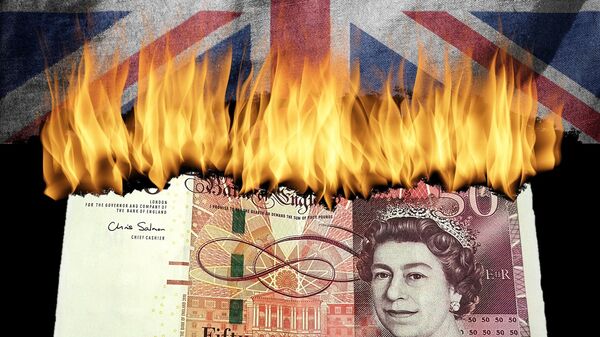Analysis from the Resolution Foundation think tank says that changes in Britain's economic outlook since the June 23 EU referendum vote are expected to lead to a "deterioration in the public finances."
The foundation warned that such a deterioration makes it is increasingly unlikely the government will be able to meet targets put in place by former Prime Minister David Cameron, who pledged to deliver a budget surplus by 2019-2020.
How an economic downgrade and different fiscal targets could affect the deficit over the course of the parliament https://t.co/TmJ7rgA6sk pic.twitter.com/eoO80nraoD
— ResolutionFoundation (@resfoundation) October 26, 2016
The report said that a growing gap between public income and expenditure would leave the government with an US$103 billion (£84bn) black hole over the next five years.
In order to achieve the results, the researchers used the average change in independent economic forecasts to the UK Office for Budget Responsibility's (OBR) most recent projection in March.
Since #Brexit vote cost of UK debt service has risen so much it's now higher than UK net annual EU contributions. Utterly pointless exercise
— nick tolhurst (@nicktolhurst) October 26, 2016
The foundation's concern for the Britain's public finances in the wake of the decision to leave the EU also comes as a leaked UK Treasury document warned of an annual US$19.5 billion (£16 bn) gap in public finances next year.
Brexit Impact
These latest findings have raised significant concerns about the impact of Brexit on the UK, with the British pound already losing significant value since the June 23 vote, while separate leaked Treasury documents warns a "hard Brexit" could slash Britain's GDP by close to 10 percent.
"Despite the long-term impact of Brexit remaining very uncertain at this stage, there is a strong consensus among economists that post-referendum uncertainty will lead to deterioration in the public finances, which were coming in below expectation even before the referendum," said Matt Whittaker, chief economist at the Resolution Foundation.
With a debt TWICE as big as they inherited from Labour in 2010, Tories could not have put UK in weaker position to weather storm of #Brexit.
— Marcus Chown (@marcuschown) October 26, 2016
"We won't know the OBR's verdict until 23 November but our analysis shows that the Chancellor may face a new £84 billion borrowing black hole and the prospect of breaking the fiscal rules inherited from his predecessor."
As a result of weakened fiscal situation, Whittaker called on UK Chancellor Philip Hammond to use next month's Autumn statement to "press the fiscal rest button" and break with the heavy austerity agenda pursued by the former Cameron government.
Our new fiscal frontier illustrates how the Chancellor might choose to spend any new fiscal leeway in his Autumn Statement pic.twitter.com/PlGHn8cu9i
— ResolutionFoundation (@resfoundation) October 26, 2016
"Rather than announcing very significant further tax rises or spending cuts in the face of renewed economic headwinds, the Chancellor is right therefore to press the fiscal reset button and set a new economic course for the remainder of the parliament."


